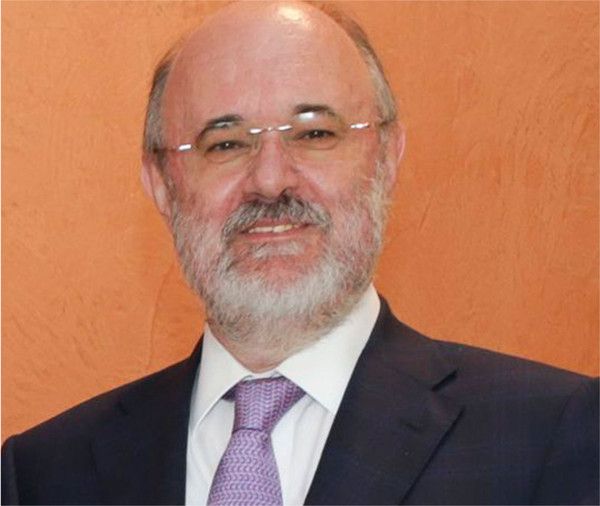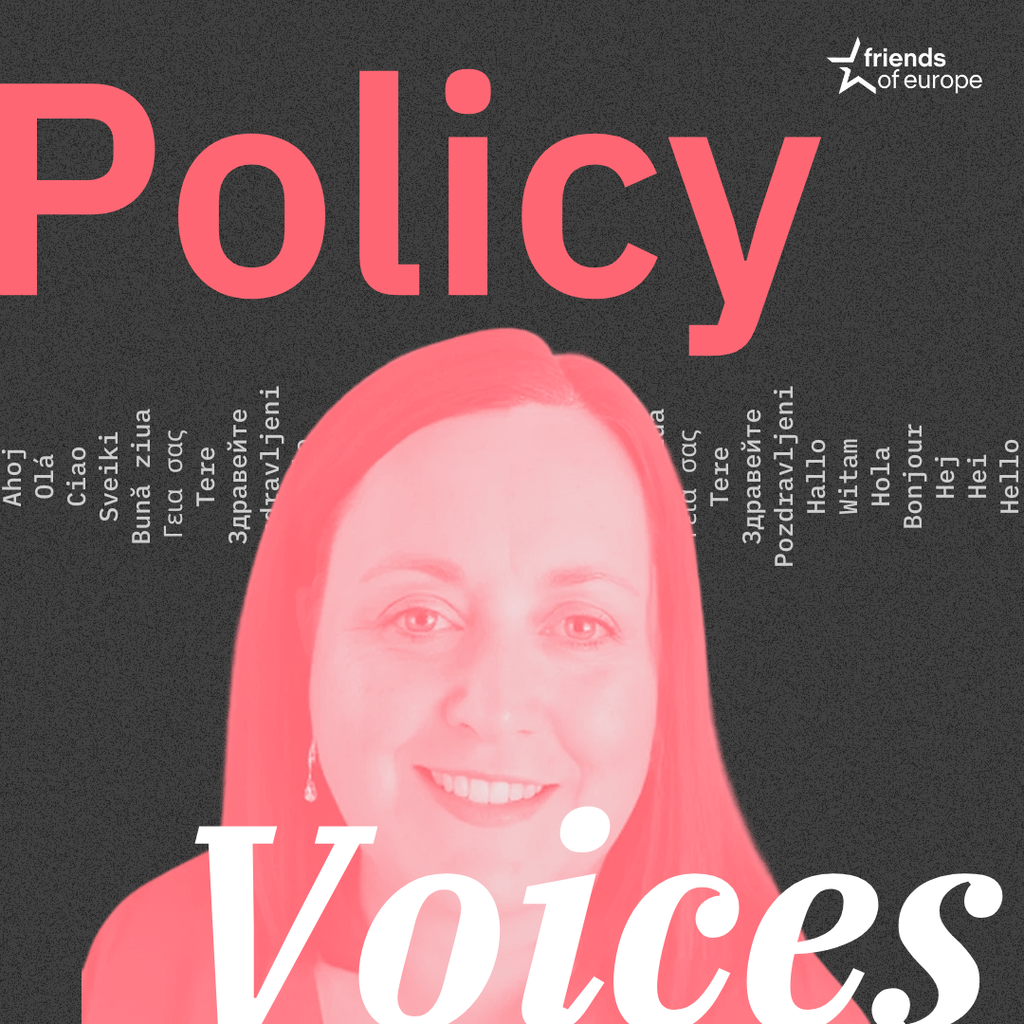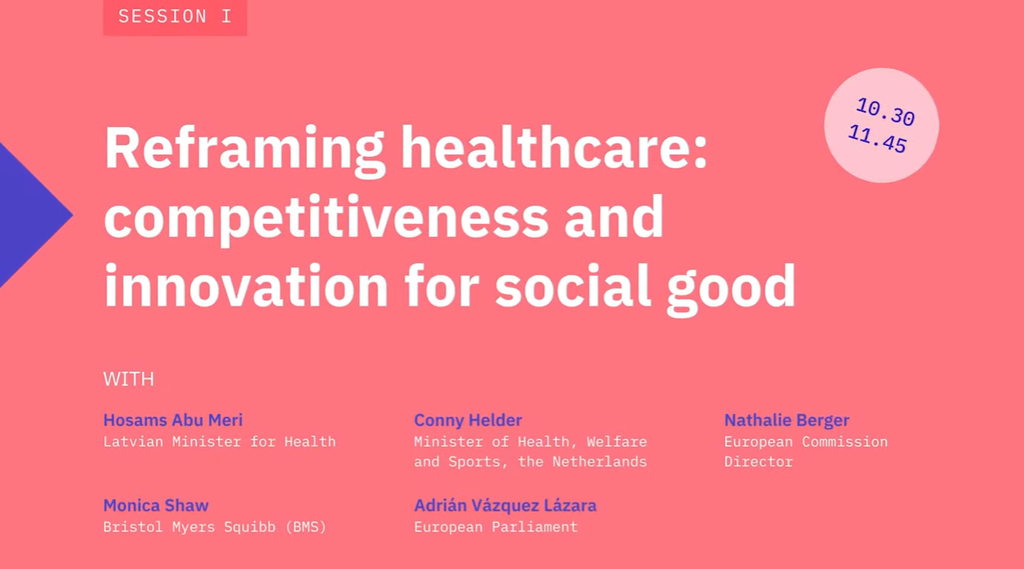
Summary
‘Disruptive’ isn’t a positive term, right? Wrong! It’s being used to describe the type of innovation that is urgently needed to shake up healthcare systems and bring in a broader range of actors and tools to relieve suffering and extend the number of years that Europeans enjoy good health.
Friends of Europe is launching a series of three high-level roundtables to examine the steps needed to create “disruptive models” for overhauling and improving healthcare systems across the EU.
European healthcare is already assailed by the combined forces of ageing, increased levels of chronic disease and growing shortages of qualified medical staff. Harnessing new technology is a solution, but that means introducing sometimes radical reforms to long-established institutions and practices.
By assessing the regulatory changes needed together with new business models and value networks, this series of Friends of Europe roundtables aims to build a holistic picture of how healthcare structures can be adapted to keep pace with the revolution in diagnostic and clinical advances. It also intends to make a substantial contribution to the debate on how Europe’s expanding healthcare sector can remain affordable.
About
‘Disruptive’ isn’t a positive term, right? Wrong! It’s being used to describe the type of innovation that is urgently needed to shake up healthcare systems and bring in a broader range of actors and tools to relieve suffering and extend the number of years that Europeans enjoy good health.
Friends of Europe launched a series of three high-level roundtables to examine the steps needed to create “disruptive models” for overhauling and improving healthcare systems across the EU.
European healthcare is already assailed by the combined forces of ageing, increased levels of chronic disease and growing shortages of qualified medical staff. Harnessing new technology is a solution, but that means introducing sometimes radical reforms to long-established institutions and practices.
By assessing the regulatory changes needed together with new business models and value networks, this series aimed to build a holistic picture of how healthcare structures can be adapted to keep pace with the revolution in diagnostic and clinical advances. It also intends to make a substantial contribution to the debate on how Europe’s expanding healthcare sector can remain affordable.
Schedule
Disruptive innovation seeks to make more healthcare services accessible to people presently denied to them, either because they can’t afford them or they aren’t available. It could also offer simple tools to enable people more involvement in their own healthcare, for instance through cheap genetic screening for diseases and apps that monitor key indicators like blood pressure and cholesterol levels.
However, it takes a long-term view of healthcare that in Europe is increasingly under both financial and demographic pressure. Ageing alone is set to push EU healthcare costs from an average 8.5% of GDP today to an unsustainable 10% by 2060. Without a radical re-think of the healthcare sector’s business models, that figure may be pushed still higher by new technologies and expensive medical breakthroughs.
Keeping costs under control therefore demands a shift from ‘care’ to ‘prevention’. But today’s pricing and reimbursement systems don’t adequately recognise the ways that new technology tools can help change people’s behaviour patterns and create much more cost-effective preventive healthcare systems.
What do governments need to do to encourage new business models? What mechanisms could create the incentives for technological innovation in health to facilitate a paradigm shift? How could new players and economic actors be encouraged into the health sector as catalysts for change? And is there a ‘European’ dimension of the healthcare challenges confronting EU countries?
Moderator
Tamsin Rose
Facilitator
Speakers
Clemens Martin Auer
Director General of the Austrian Ministry of Health and Coordinator of the eHealth Governance Initiative (eHGI)
Stefan Biesdorf
Partner at McKinsey & Company and Leader of McKinsey’s Healthcare Informatics Group
Max Müller
Chief Strategy Officer at DocMorris
Petra Wilson
Managing Director, Health Connect Partners
Speakers

Director General of the Austrian Ministry of Health and Coordinator of the eHealth Governance Initiative (eHGI)

Partner at McKinsey & Company and Leader of McKinsey’s Healthcare Informatics Group
Chief Strategy Officer at DocMorris

Managing Director, Health Connect Partners

Facilitator
Tamsin Rose is a facilitator who was until recently a senior fellow for health at Friends of Europe. Having studied international relations, she has 25 years of experience working across the European continent from Ireland to Mongolia. A natural communicator, Tamsin has been a radio reporter, worked on press for the EU Delegation in Moscow and is currently a member of the external speaker team for the European Commission Directorate-General for Communication, describing how the EU works and key policies to visitor groups from around the world. Since 2002, she has specialised in public health and public participation issues, serving as the Secretary General of the European Public Health Alliance (EPHA), and providing strategic advice for health groups on how to engage successfully with the EU.
Partners
Coorganized with


Activities
Europe's moment: advancing clinical research and health innovation
Next event In person & online

- Area of Expertise
- Sustainable Livelihoods
Re-imagining Europe's health systems
Past event In person & livestreamed

- Area of Expertise
- Sustainable Livelihoods
Health check for a competitive medical technology sector in Europe
Past event In person

- Area of Expertise
- Sustainable Livelihoods
Healthy ageing for Europe's future: the value of adult immunisation
Past event In person & livestreamed

- Area of Expertise
- Sustainable Livelihoods
Policy Voices | Re-imagining Europe’s health systems
- Category
- Podcast
- Area of Expertise
- Sustainable Livelihoods
Financing the green and just transition: towards further partnerships…
- Category
- #CriticalThinking
- Author
- By Sebastián Nieto-Parra
Reclaiming medicines and health innovation for our health
- Category
- #CriticalThinking
- Author
- By Els Torreele
Hidden biases in public health research: why we are failing our most…
- Category
- #CriticalThinking
- Author
- By Marthe De Boevre

- Area of Expertise
- Sustainable Livelihoods

- Area of Expertise
- Sustainable Livelihoods

- Area of Expertise
- Sustainable Livelihoods

- Area of Expertise
- Sustainable Livelihoods
Continue
the debate on
- Debating Europe
